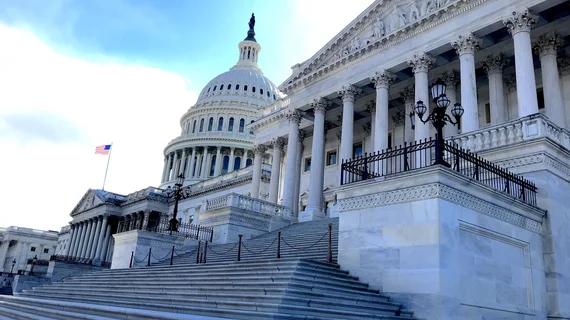Lawmakers urge DOJ to act on anti-trans threats at children’s hospitals
Dozens of lawmakers banded together to urge the Department of Justice to act on rising anti-transgender threats made against the nation’s children’s hospitals.
Congresswoman Ayanna Pressley (D-MA-07), Congressman Dwight Evans (D-PA) and Congresswoman Eleanor Holmes Norton (D-DC) led 36 members of Congress in writing a letter to the DOJ about the threats of violence directed at several children’s hospitals because of their treatment of transgender and non-binary patients.
The letter comes after several healthcare groups previously asked the DOJ to interfere with these growing threats in October.
More recently, Boston Children’s Hospital received its third bomb threat, while institutions in Philadelphia, Washington, D.C, Pittsburgh and elsewhere have received similar threats this year.
“Our trans youth deserve to receive essential, life-saving, gender-affirming healthcare and our medical personnel should be able to provide it without fear of being attacked,” Rep. Pressley said in a statement. “From the brutal nightclub shooting in Colorado Springs this weekend to the latest bomb threat against Boston Children’s just last week, anti-trans and anti-LGBTQ+ violence is on the rise and must be taken seriously. That’s why we’re calling on the DOJ to immediately step up efforts to help keep healthcare providers, patients and community members safe.”
The letter, addressed to Attorney General Merrick Garland, asked the DOJ to outline the steps it is taking to address the threats of violence and reinforce federal nondiscrimination protections nationwide. The letter also asked the DOJ to provide further guidance to healthcare providers on how to protect their staff and patients from these threats. The threats are occurring both online and in person.
“Online posts by social media accounts spreading disinformation about transgender and nonbinary individuals have spurred real life consequences for health care providers throughout the country and for their patients,” the letters stated. “When popular accounts share unfounded and hurtful claims about these institutions, millions of followers are instigated to send hostile messages and threaten hospital staff. Patients may suffer from a lack of critical care access as hospitals must focus on threats of violence over caring for those in need. Furthermore, LGBTQ+ and gender nonconforming youth may fear seeking medical care or may be discouraged from coming out due to the spread of violent propaganda about them.”
Lawmakers noted social media channels and platforms, including Facebook, Twitter, Instagram, YouTube and others, have “been slow to act” to limit the threats of intimidation and violence that can have real-life impacts on health. They also scrutinized how these platforms can profit off accounts spreading hate and misinformation.
The DOJ is tasked with responding to the inquiries in the letter, including how it is working with the Department of Health and Human Services (HHS) and other agencies to safeguard the country from further threats against children’s hospitals or other institutions, if the agency will consult with trans-led organizations to determine best practices and what steps the DOJ is taking to hold accountable those who break the law by threatening or harassing these patients, facilities and staff.
The threats come after the Trump administration finalized a rule in June 2020 repealing Obama-era protections for trans patients.

